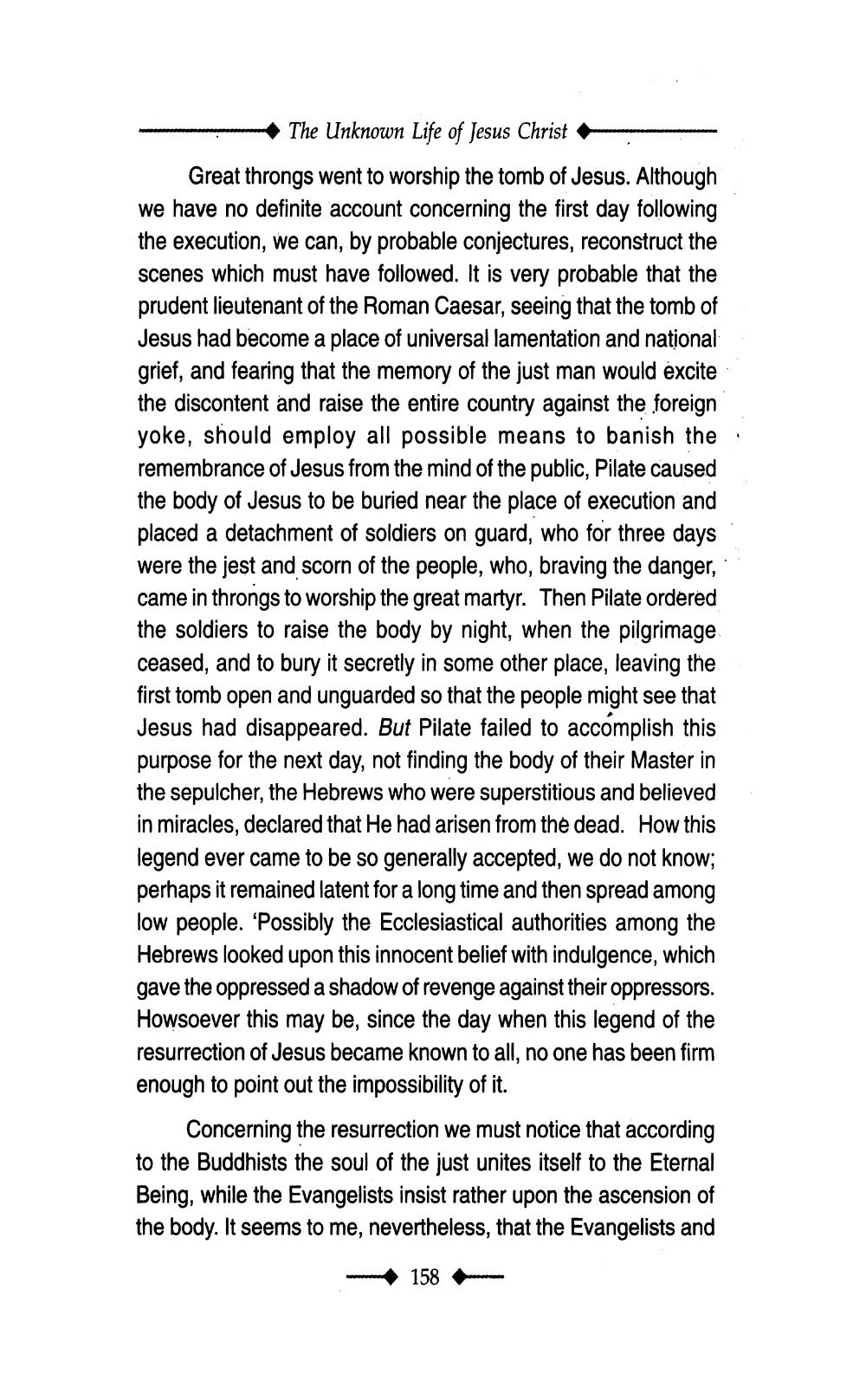________________
- The Unknown Life of Jesus Christ Great throngs went to worship the tomb of Jesus. Although we have no definite account concerning the first day following the execution, we can, by probable conjectures, reconstruct the scenes which must have followed. It is very probable that the prudent lieutenant of the Roman Caesar, seeing that the tomb of Jesus had become a place of universal lamentation and national grief, and fearing that the memory of the just man would excite the discontent and raise the entire country against the foreign yoke, should employ all possible means to banish the remembrance of Jesus from the mind of the public, Pilate caused the body of Jesus to be buried near the place of execution and placed a detachment of soldiers on guard, who for three days were the jest and scorn of the people, who, braving the danger, came in throngs to worship the great martyr. Then Pilate ordered the soldiers to raise the body by night, when the pilgrimage ceased, and to bury it secretly in some other place, leaving the first tomb open and unguarded so that the people might see that Jesus had disappeared. But Pilate failed to accomplish this purpose for the next day, not finding the body of their Master in the sepulcher, the Hebrews who were superstitious and believed in miracles, declared that He had arisen from the dead. How this legend ever came to be so generally accepted, we do not know; perhaps it remained latent for a long time and then spread among low people. 'Possibly the Ecclesiastical authorities among the Hebrews looked upon this innocent belief with indulgence, which gave the oppressed a shadow of revenge against their oppressors. Howsoever this may be, since the day when this legend of the resurrection of Jesus became known to all, no one has been firm enough to point out the impossibility of it.
Concerning the resurrection we must notice that according to the Buddhists the soul of the just unites itself to the Eternal Being, while the Evangelists insist rather upon the ascension of the body. It seems to me, nevertheless, that the Evangelists and
-
158




